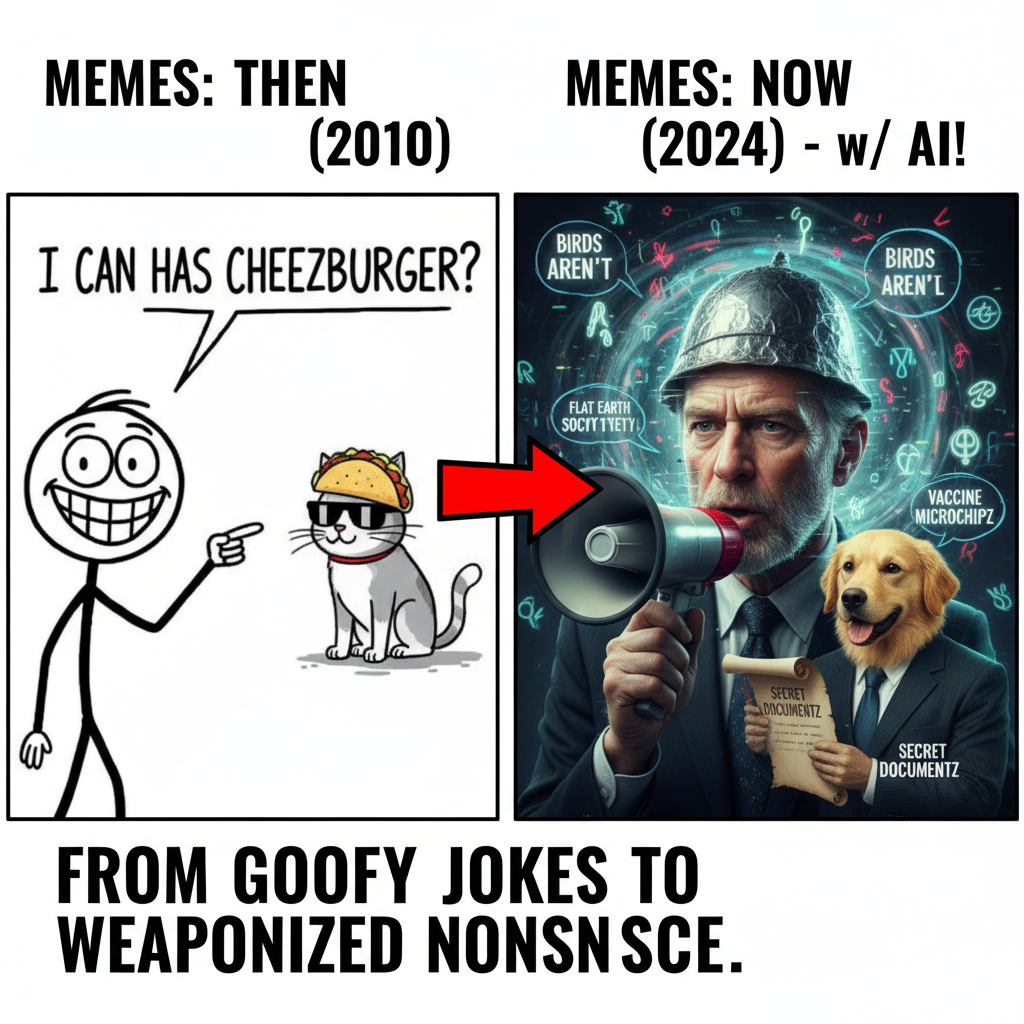From Funny Memes to Dangerous Deepfakes
We live in a modern world, and on the surface, that sounds exciting. New technologies, instant communication, limitless information. But beneath the noise, the truth is harder to hold onto.
The world has changed — and yet, in some ways, not quite. Instead of adapting gracefully, we’ve built new ways to confuse ourselves. Wars, mass migration, pandemics, and social division have become the breeding ground for one thing in particular: conspiracy theories.
The Pandemic and the Rise of Conspiracies
The COVID-19 pandemic was a turning point. At the height of isolation, millions of people were cut off from their normal lives. Job losses, travel restrictions, panic, vaccines, and grief created the perfect storm for wild ideas.
With more free time and an endless internet at our fingertips, conspiracy theories spread faster than ever before. People realized they could say anything online — no matter how absurd — and find an audience. That current of misinformation didn’t vanish with the pandemic. If anything, it has kept growing.
Memes: From Jokes to Weapons
The internet made conspiracies easier to spread, and memes became their favorite vehicle. Once harmless pictures with funny captions, memes are now powerful cultural tools.
And with the rise of AI, memes have leveled up. No longer just static images, they’re now videos with deepfake voices and realistic edits. What used to be a joke in your feed is now a tool for political manipulation.
The problem isn’t random people making silly memes for fun. The problem is when these memes reach the highest levels of politics — turning into propaganda, division, or even disinformation.
When Presidents Meme
Take Donald Trump as an example. As a former and possibly future POTUS, his use of memes has gone far beyond playful trolling. From mocking Democrats to posting AI-generated conspiracy videos, his posts blur the line between satire and manipulation.
Here are a few recent examples:
- Trump AI meme video (MedBeds)
https://x.com/realDonaldTrump/status/1973218518893207825
➡️ A now-deleted AI-generated video promoted “MedBeds,” a fictional device said to cure all diseases. Widely debunked as fake. - Trump meme mocking Democrats
https://x.com/realDonaldTrump/status/1972822596397003159
➡️ A meme-style post targeting Democratic leaders, part of Trump’s ongoing trolling campaigns. - Trump “deepfake” parody meme
https://x.com/realDonaldTrump/status/1968134929080082432
➡️ A video meme featuring AI voices and parody clips, raising concerns over political disinformation. - Trump satirical meme post
https://x.com/realDonaldTrump/status/1963788861743530185
➡️ A meme mocking opponents, criticized for being disrespectful rather than humorous. - Viral reaction meme (Spencer Hakimian)
https://x.com/SpencerHakimian/status/1973994459999179086
➡️ Commentary on Trump’s meme tactics, highlighting how absurd and polarizing they’ve become.
Even Homeland Security has weighed in:
- DHSgov official response
https://x.com/DHSgov/status/1970251208322621530
➡️ Homeland Security post addressing deepfakes and online misinformation risks, reflecting government concern.
The Line Between Fun and Damage
Memes can be fun. They can even make conspiracy theories feel lighthearted — flat earth jokes, “birds aren’t real,” or Finland denial memes. But when memes are weaponized by leaders and amplified by AI, they stop being funny.
They become disrespectful, promote deepen division and spread falsehoods faster than truth can catch up.
A president should be a diplomat for all people, not a meme-warrior targeting opponents and minorities. Leadership is supposed to unite, not troll.
Conclusion: Keep Memes Fun
The internet gave us freedom of speech. AI gave us the freedom to fabricate. The combination is powerful — and dangerous.
Conspiracies will never vanish. Memes will always exist. The choice is in how we use them.
Keep memes for fun. Keep conspiracies as jokes. Because once they’re weaponized, they stop being entertainment and start becoming a threat.
